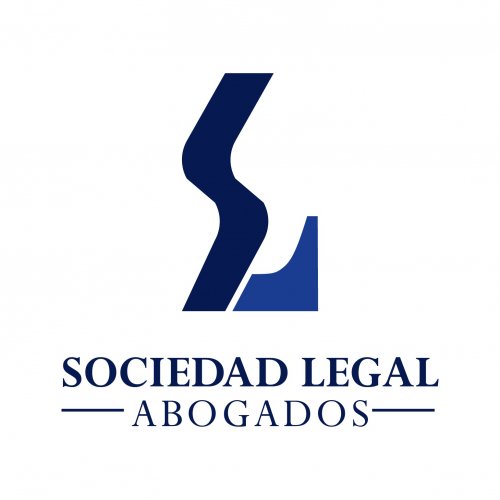Best Nonprofit & Charitable Organizations Lawyers in Guayaquil
Share your needs with us, get contacted by law firms.
Free. Takes 2 min.
List of the best lawyers in Guayaquil, Ecuador
About Nonprofit & Charitable Organizations Law in Guayaquil, Ecuador
Nonprofit and charitable organizations play a vital role in Guayaquil, Ecuador, contributing to social welfare, education, health, and environmental conservation. These entities operate under specific legal frameworks designed to ensure transparency, accountability, and alignment with their altruistic missions. The legal landscape governing these organizations encompasses diverse areas such as registration processes, taxation, governance, and compliance with both national and local regulations.
Why You May Need a Lawyer
Legal assistance can be critical in several scenarios related to nonprofit and charitable organizations. Common situations where legal expertise may be required include:
- Starting a Nonprofit: Establishing a nonprofit involves complex legal processes such as registration, drafting articles of incorporation, and obtaining tax-exempt status.
- Compliance Issues: Navigating regulatory requirements and ensuring ongoing compliance with laws to avoid penalties.
- Taxation Matters: Understanding tax obligations, exemptions, and filing requirements specific to nonprofit entities.
- Governance and Operations: Developing bylaws, establishing governance structures, and managing board responsibilities.
- Contracts and Agreements: Drafting and reviewing agreements, including employment contracts, leases, and partnership agreements.
- Dispute Resolution: Handling disputes related to donor agreements, employment issues, or regulatory compliance.
In these and other situations, a lawyer specializing in nonprofit law can offer invaluable guidance and expertise.
Local Laws Overview
The regulatory framework for nonprofit and charitable organizations in Guayaquil is influenced by national laws and local regulations. Key aspects include:
- Legal Status and Registration: Organizations must be registered with the appropriate governmental bodies and comply with regulatory guidelines.
- Governance Requirements: Nonprofits must have a governance structure that includes a board of directors responsible for overseeing activities and ensuring accountability.
- Tax Considerations: Nonprofits may qualify for tax-exempt status, but they must adhere to specific conditions and report their financial activities transparently.
- Reporting Obligations: Regular financial and operational reporting to authorities is mandatory to demonstrate compliance and maintain good standing.
- Fundraising Regulations: Laws govern fundraising activities, ensuring ethical practices and transparency in the use of funds.
Frequently Asked Questions
What is the process for registering a nonprofit organization in Guayaquil?
The registration involves drafting a constitution, submitting required documents to the Ministry of Economic and Social Inclusion, and obtaining legal recognition.
Are nonprofit organizations in Ecuador exempt from taxes?
Yes, nonprofit organizations can apply for tax-exempt status but must meet certain criteria and maintain compliant financial records.
How are nonprofit organizations governed in Ecuador?
They are typically governed by a board of directors, which is responsible for strategic oversight and ensuring the organization's mission and objectives are met.
Can a nonprofit in Guayaquil engage in commercial activities?
Yes, but profits generated must be used to further the organization's charitable objectives and comply with legal restrictions on commercial activities.
What are the requirements for maintaining good standing as a nonprofit?
Regular reporting of financial activities, compliance with governance standards, and meeting transparency requirements are necessary to maintain good standing.
How can nonprofits ensure compliance with fundraising laws?
Organizations should follow ethical guidelines, report accurately on fund allocation, and adhere to both local and national fundraising regulations.
What are potential legal risks facing nonprofit organizations?
Nonprofits may face risks related to mismanagement of funds, breach of donor agreements, or non-compliance with regulatory requirements.
How are disputes within nonprofit organizations resolved?
Disputes are typically resolved through mediation or arbitration, and legal assistance can provide guidance on managing internal and external conflicts.
Can foreigners establish a nonprofit in Guayaquil?
Yes, foreigners can establish nonprofit organizations, subject to compliance with Ecuadorian laws and registration requirements.
What are the consequences of not adhering to nonprofit regulations?
Consequences may include fines, revocation of legal status, and loss of tax-exempt status, which underscores the importance of compliance.
Additional Resources
For further guidance, consider consulting the following resources:
- Ministry of Economic and Social Inclusion: Provides regulations and guidance for nonprofits operating in Ecuador.
- Local Bar Associations: Offer directories of lawyers specializing in nonprofit and charitable organizations law.
- Non-Governmental Organization Networks: Provide support and advocacy for nonprofits in Ecuador.
Next Steps
If you require legal assistance related to nonprofit and charitable organizations, consider the following steps:
- Research and identify legal professionals with expertise in nonprofit law.
- Prepare documentation relevant to your legal needs, such as organizational bylaws or financial records.
- Schedule consultations with potential legal advisors to discuss your specific requirements and determine the best course of action.
- Engage a qualified lawyer who can provide personalized legal support and ensure compliance with applicable laws and regulations.
Taking these steps can help safeguard your organization's interests and ensure you effectively navigate the legal complexities of operating a nonprofit in Guayaquil, Ecuador.
Lawzana helps you find the best lawyers and law firms in Guayaquil through a curated and pre-screened list of qualified legal professionals. Our platform offers rankings and detailed profiles of attorneys and law firms, allowing you to compare based on practice areas, including Nonprofit & Charitable Organizations, experience, and client feedback.
Each profile includes a description of the firm's areas of practice, client reviews, team members and partners, year of establishment, spoken languages, office locations, contact information, social media presence, and any published articles or resources. Most firms on our platform speak English and are experienced in both local and international legal matters.
Get a quote from top-rated law firms in Guayaquil, Ecuador — quickly, securely, and without unnecessary hassle.
Disclaimer:
The information provided on this page is for general informational purposes only and does not constitute legal advice. While we strive to ensure the accuracy and relevance of the content, legal information may change over time, and interpretations of the law can vary. You should always consult with a qualified legal professional for advice specific to your situation.
We disclaim all liability for actions taken or not taken based on the content of this page. If you believe any information is incorrect or outdated, please contact us, and we will review and update it where appropriate.









